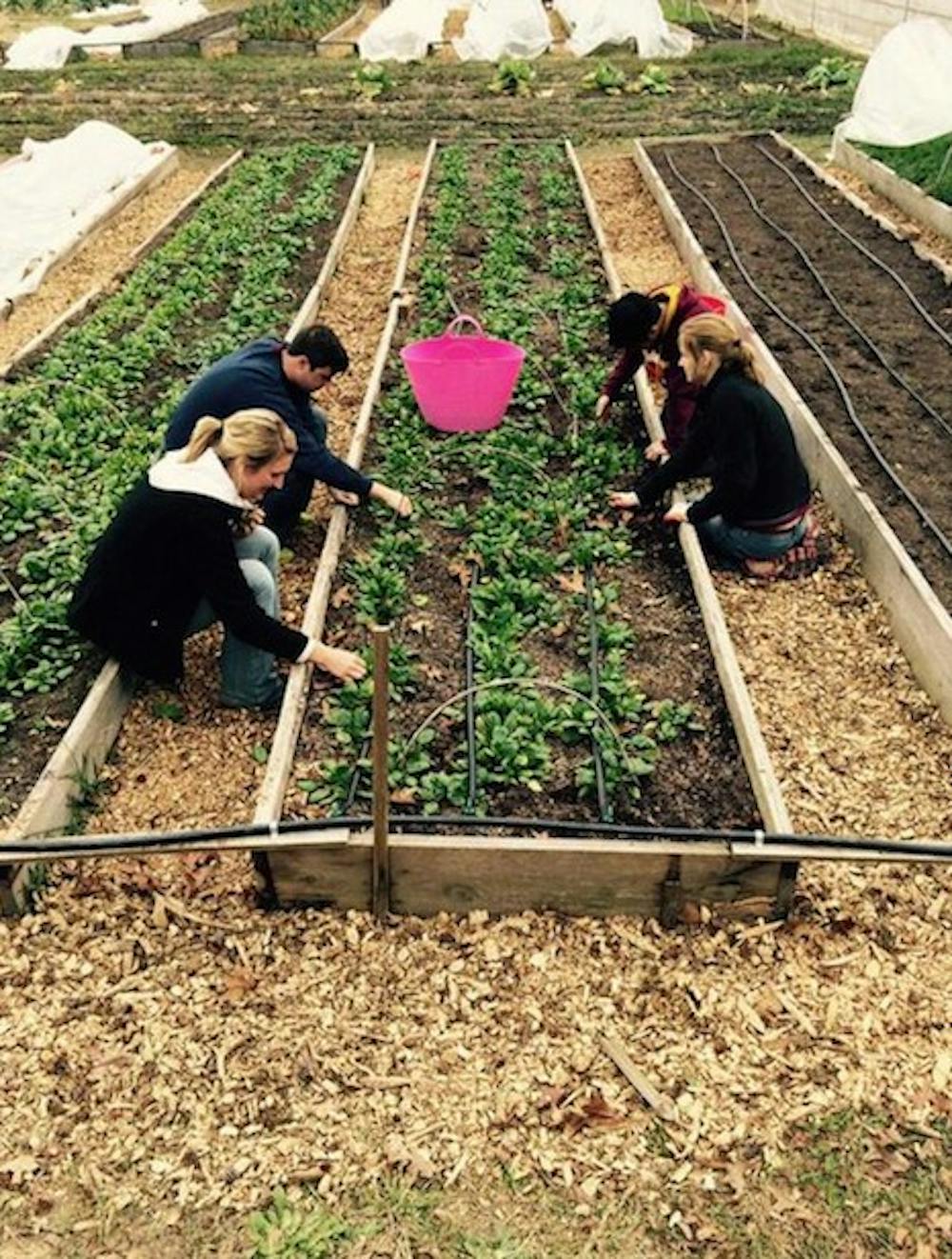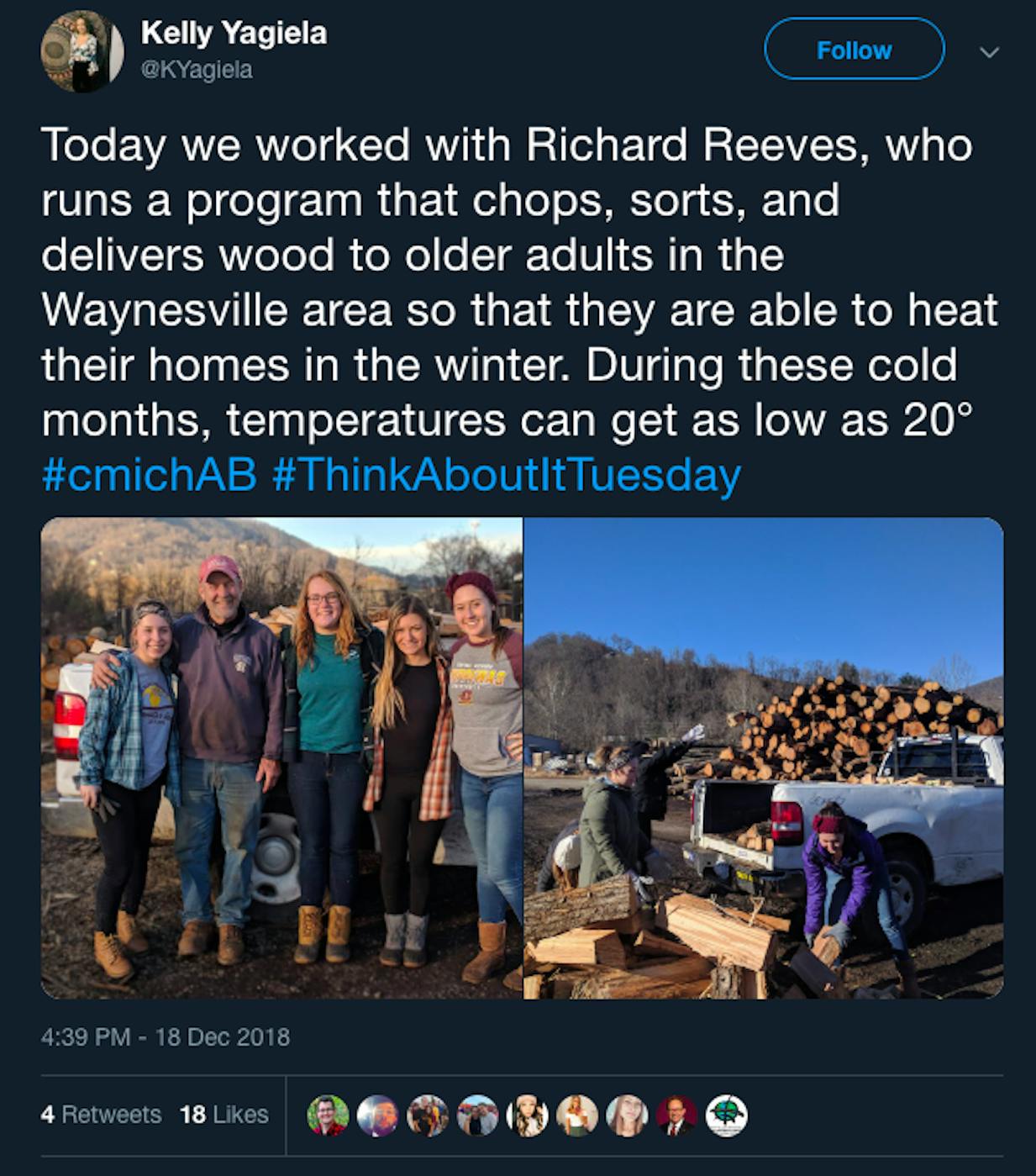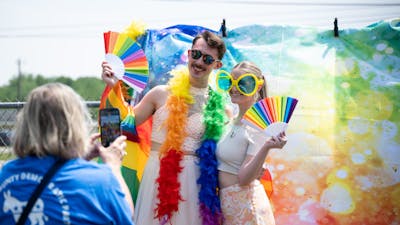Alternative break experiences help shape students' career choices

Students participate in “Food Justice” which is an alternative break that ensures nutritional food accessibility to communities.
Thanks to the experiences alternative breaks gave Kelly Yagiela over four years at Central Michigan University, she has devoted her future to social work.
The communication disorders major's most recent break was focused on community building with an aging population from Dec. 16-21 in Waynesville, North Carolina. This was Yagiela's sixth alternative break, having been to Arkansas, Baltimore, Detroit, Florida and Denver.
Yagiela's passion for alternative breaks helped her become a student coordinator for the program.
"Whatever major you are going into or whatever your passion is — you can bring (alternative break experiences) to that," Yagiela said. "That's why I believe in this program. You gain a lot of experience and education to make you more prepared."
Alternative breaks are CMU-organized volunteer opportunities that students can sign up for to travel around the country and volunteer in local communities. "Students have the opportunity to develop into lifelong active citizens in local, national, and global communities through diverse, direct-service experiences dedicated to social justice," according to CMU's website.
Yagiela, an Essexville senior, and her group worked with Richard Reeves who cuts and delivers wood to local homes that need heating.

"He was a very humble man," Yagiela said. "He's been doing that for about 13 years. He was a really inspiring guy who showed us how to be involved in your community even after graduation."
Yagiela didn't chop wood, but her group organized the wood, load it on the truck and deliver it to people's homes.
"Richard told us that sometimes when he delivers the wood that people cry because it is hard to ask for help," she said.
Rachel Norman, who also is a student coordinator for alternative breaks, said going on trips during her college career has helped her become a more well-rounded, conscious citizen.
"I have made (alternative breaks) my life here at CMU and my career," she said. "Alternative Breaks has developed me as a student leader. I know when I am making choices, I know the impact of those choices."
Alternative Breaks lets students rank five preferred topics, or what they call issues, to learn about while volunteering. Norman, a Saginaw senior, was a participant in the urban sustainability break in Savannah, Georgia.
Partnering with the Savannah Tree Foundation, she learned how to protect "urban green spaces," which fit perfectly with her environmental science major.
"The idea of the break was to learn how to have a balance between conservation and urbanization," Norman said. "We learned so much about trees like how to identify species and the benefits of each species."
Livonia freshman Gabrielle Harter went on her first alternative break last month. Harter and her group went on a natural disaster restoration break to New Orleans, Louisiana to rebuild homes in the aftermath of Hurricane Katrina. They partnered with the St. Bernard Project, a nonprofit disaster relief organization.
"I thought we were going to go to where the hurricanes were hitting more recently like Florida and being kind of like a first responder team," Harter said. "When we figured out we were still rebuilding from Katrina, I think it had a bigger impact on me. Thirteen years later they are still rebuilding."
Harter and her group learned that 30,000 houses still have to be rebuilt to reach the same number of houses in Louisiana when Katrina hit. Harter's group was assigned one house that was in the drywall phase. Other groups painted and did siding.
"I have always loved opportunities to volunteer," she said. "Alternative Breaks offered me the opportunity to do something outside the state of Michigan."
About 250 participants completed about 10,000 hours of community service across the country, according to alternative break statistics.
CMU offered more winter alternative break opportunities than they did last year, which resulted in a rise in participants, Yagiela said.
Different topics that students got to pick from include:
- Access to sports and recreation
- Housing inequality
- Veteran's support and outreach
- Animal rescue
- Wildlife rehabilitation
- Community restoration
- Early childhood development
- Community building within aging populations
- Ending animal exploitation
- Environmental conservation
- Food justice
- Historical preservation
- Food insecurity and homelessness
- Supporting immigrant populations
- Natural disaster restoration
- Protecting public lands
- Access to STEAM education
- Survivors of aggression
- Supporting children and families
- Urban sustainability
- Uplifting children and families
- Youth advocacy
- Youth development
Alternative spring break opportunities are available on Orgsync under Mary Ellen Brandell Volunteer Center’s Events. There are also weekend alternative breaks throughout the semester and summer.






